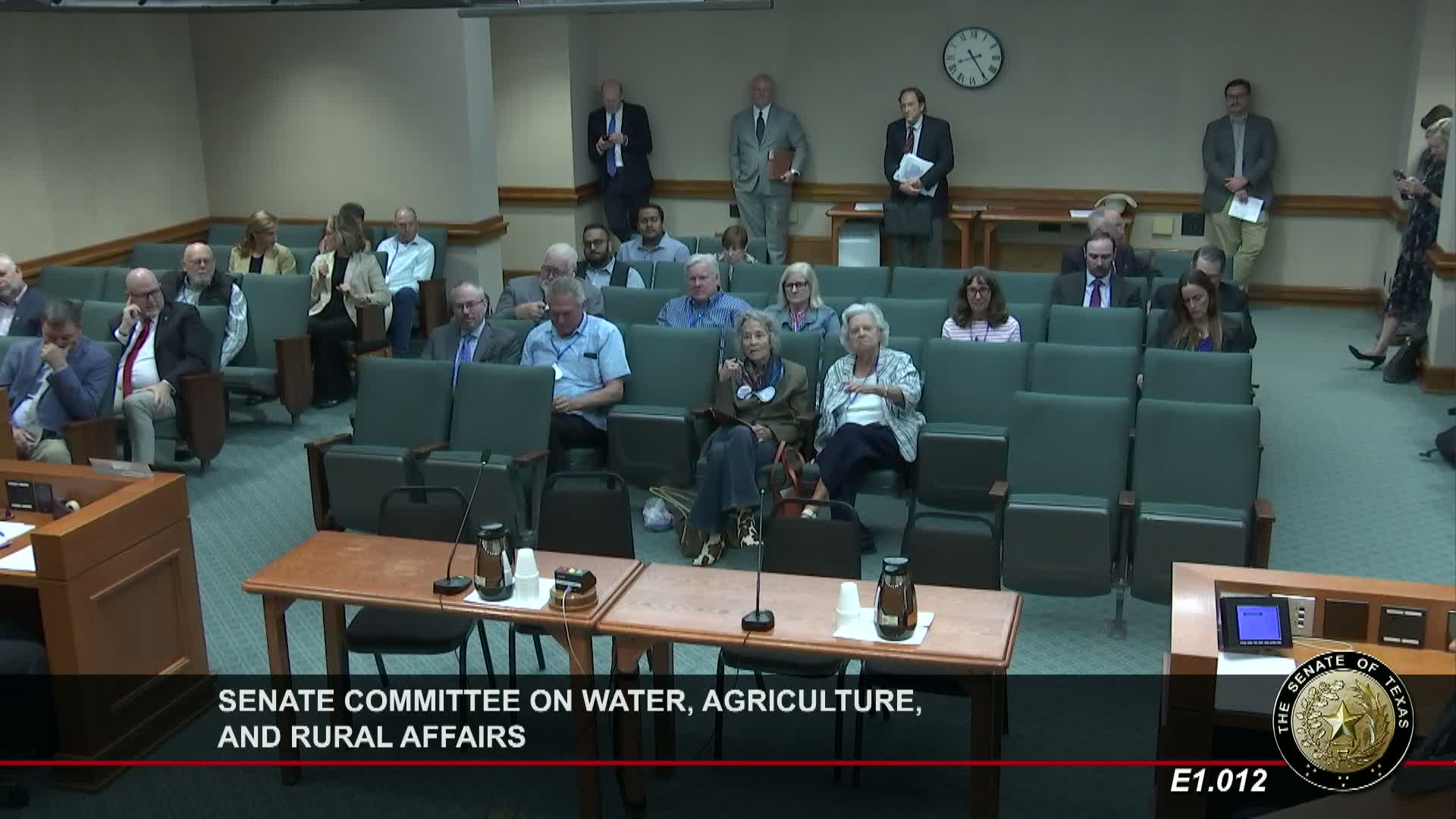Article not found
This article is no longer available. But don't worry—we've gathered other articles that discuss the same topic.
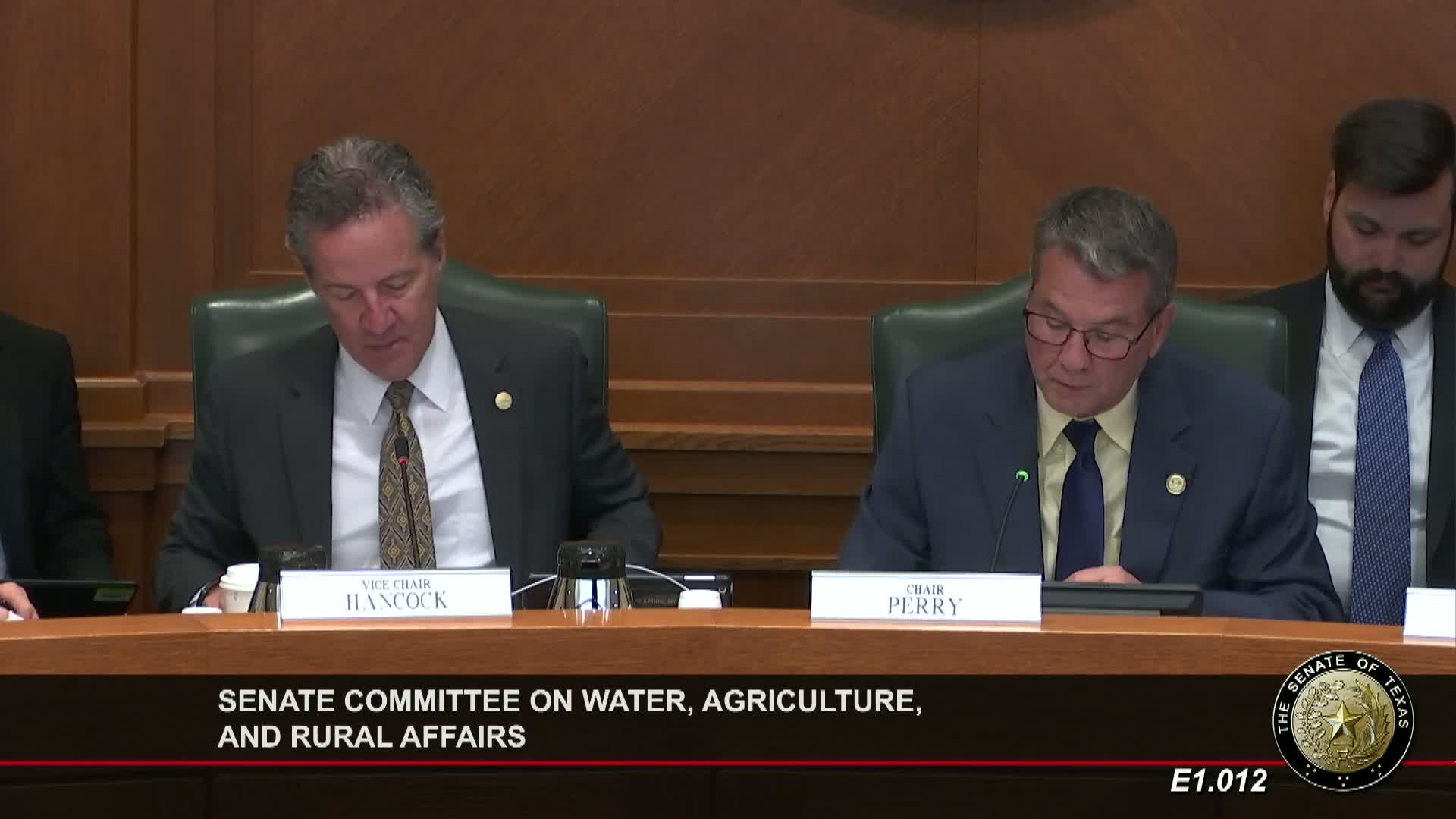
Bill to require groundwater districts to consider exempt wells draws substantial rural testimony; left pending for substitute
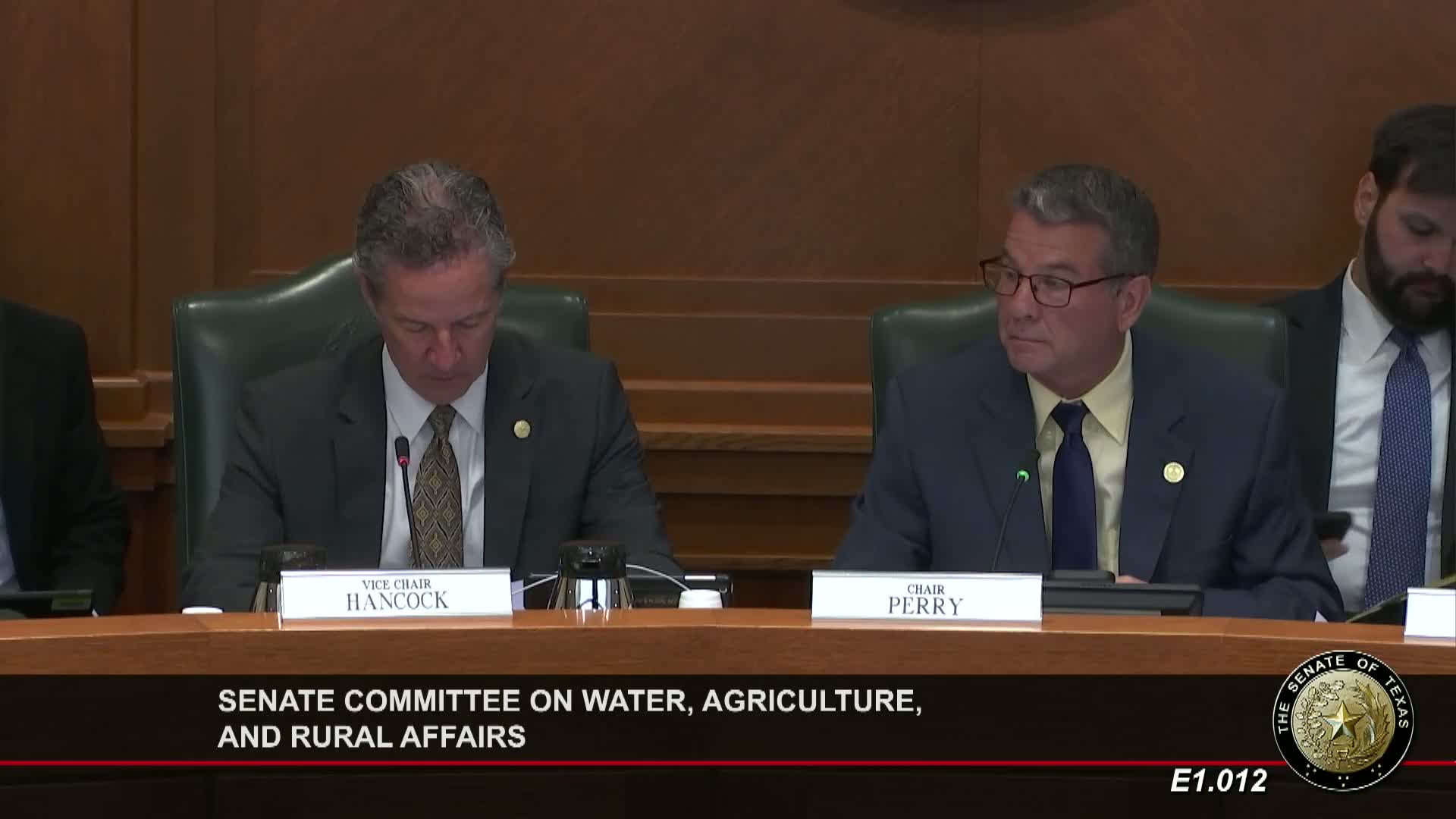
Senate committee adopts substitute to limit pipeline construction fees charged to developers by certain districts
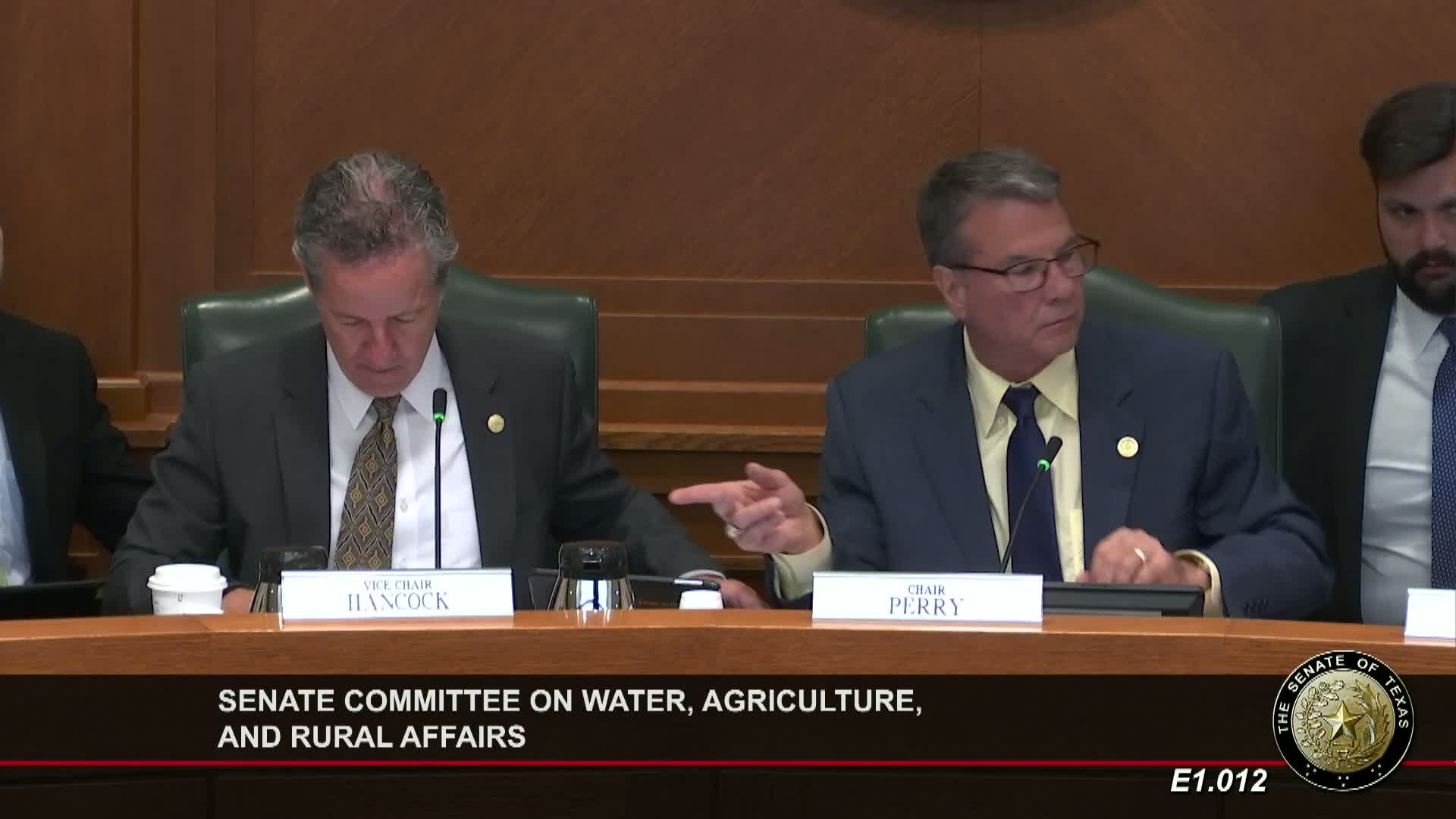
Committee adopts substitute expanding water-loss audit and mitigation requirements for large systems
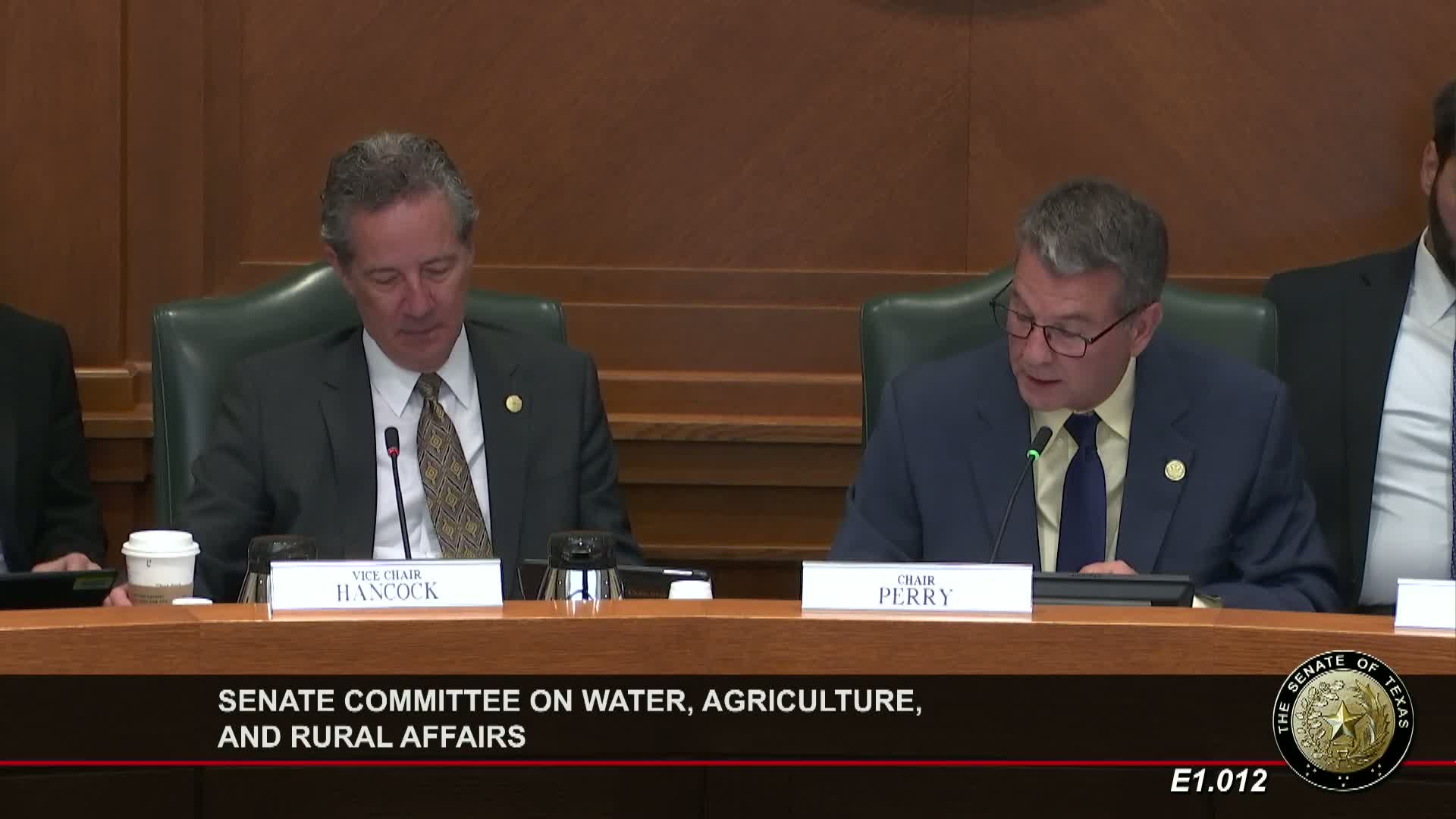
Committee backs measure prioritizing working agricultural lands for state conservation-easement purchases
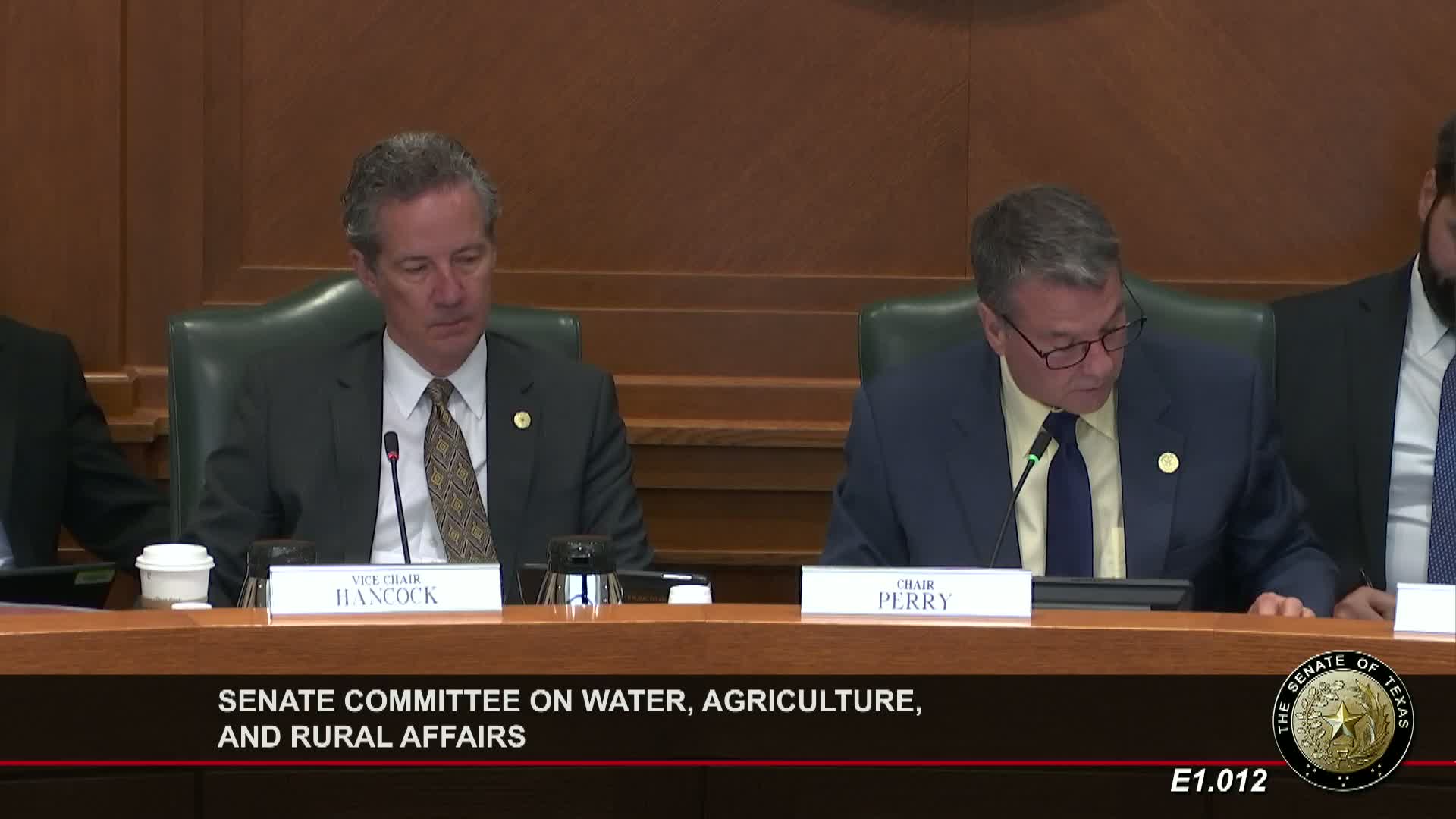
Committee adopts substitute broadening Post Oak Savannah GCD authority for roads and environmental programs funded by export fees
